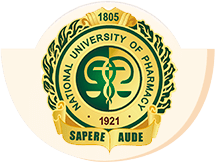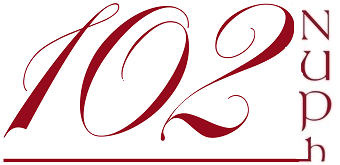Academic mobility of students in 2023
Taisia BABURNICH, Valeriya RUBTSOVA and Daria GURENKO, 1st-year students of the EP ‘Technology of pharmaceuticals’ (University of Opole, Opole, Republic of Poland, from 16.10 to 20.10.2023, short-term mobility program ‘UO at the crossroads of cultures – multiculturalism in the academic space’, within the framework of the FORTHEM Alliance’)
It was really cool to get the opportunity to visit Opole University at the first year of studying, to listen to informative lectures and communicate with students from 15 countries. We improved not only soft skills but also had a lot of spoken English practice. It was interesting to learn from students from Latvia, Romania, Germany, Spain, France, Finland, Portugal and other countries about how they study and how they plan their future.
We also visited the university library, examined buildings and scientific laboratories. One of the seminars was devoted to the discussion of stereotypes in films. An interesting discussion arose, in which we took an active part. Various communication strategies, social networks and many other related topics were also discussed. Our week in Opole was very bright, full of communication and new knowledge and inspired further active learning!
Andranik KUTSANIAN, PhD student of 3rd year of study, specialty 226 Pharmacy, industrial pharmacy, educational and scientific program ‘Pharmacy’ (Lithuanian University of Health Sciences, Kaunas, Republic of Lithuania, from 09.2023 to 30.06.2024, LSMU scholarship program):
This is my first such experience and it has been positive since my very first day in Kaunas. There is a good friendly working atmosphere, free access to scientific literature and a lot of different equipment. I already have experience in the practical production of extracts. Here, I have the opportunity to learn everything about their pharmaceutical analysis and acquire the necessary practical skills. Actually, the more I have time to learn and do now, the easier and faster I will complete my thesis. In addition, I plan to put all the acquired knowledge into practice in Kharkiv.
Lithuania is comfortable because the vast majority of locals speak English fluently. They are very friendly and willingly involve all guests of the country in learning about its traditions and culture. I also introduce my colleagues to Ukrainian and Armenian culture. So, we’re working actively and that’s exactly the kind of experience I’d like to have as a PhD student.
Iryna BOTSULA, PhD student of the 4th year of study, specialty 226 Pharmacy, industrial pharmacy, educational and scientific program ‘Pharmacy’ (University of Tartu, Republic of Estonia, from 01.09.2023 to 04.02.2024, Erasmus+):
I visited the University of Tartu for the first time in the spring of 2023. Then, I met the material base and professors Jyrki Tapio Heinämäki, Ain Raal and associate professor Ivo Laidmäe. Now they help me to continue to work on scientific research in the field of nanotechnology and 3D printing. I would like to note the openness and loyalty of Estonians, it is very easy to communicate with them and they are always ready to help. So, the stereotypes didn’t work in this case and that’s great.
Since this Erasmus+ program is designed for six months, in addition to scientific research, I am studying the Estonian language and have chosen several subjects that I also want to master. It is not mandatory for PhD students, the main one is the scientific component, but I enjoy the chance to learn new things and get to know how the University of Tartu works.
It is worth noting that Estonia is a country of digitization. All communication with government bodies and even university structures take place by e-mail. There is much unusual in the way of how the banking system works. It is also quite cold and gloomy here but this in no way spoils the general impression of the country and people, who, by the way, support Ukraine and Ukrainians.
While I’m here, I’m continuing to prepare for my thesis defense and being part of this program is helping me a lot. So, I hope to have everything in time before returning to my native university.
Alina SHPYCHAK, PhD student of the 4th year of study, specialty 226 Pharmacy, industrial pharmacy, educational and scientific program ‘Pharmacy’ (University of Tartu, Republic of Estonia, from 01.09.2023 to 04.02.2024, Erasmus+):
My fourth year of postgraduate studies at the National University of Pharmacy began in Estonia, at the University of Tartu. For me, this is the first experience of participating in an international exchange program and, at the same time, the first such long stay abroad. The mobility will last a semester.
During this time, classes on nanotechnology, learning the Estonian language and in-depth mastering of English are planned, as well as a scientific work on the topic of my thesis. In the local forests, the object of my research grows. It is Cetraria icelandia or Iceland moss. So, I even managed to collect the raw materials and start their analysis.
This is my first visit to a science lab since the start of the full-scale invasion and I’m excited to get back to research. In addition, all the equipment of the Tartu Institute of Pharmacy is familiar to me, as we have the same at NUPh.
At the beginning of the semester, we got to know other participants of the Erasmus+ program. At the University of Tartu this year, there are more than 300 students from various European countries, as well as many students from Asia and Africa. They conducted quests for us, introduced us to the city. A lot of time had to be spent on processing documents. Estonians are a really leisurely nation, but at the same time, the people are friendly and welcoming.
So, it’s quite interesting here. I come to the university every day and hope that I will have time to do everything planned, return to my native Kharkiv and defend my thesis on time.
Tetiana MATUS, 4th-year student of EP ‘Pharmacy’ (University of Tartu, Republic of Estonia, from 01.09.2023 to 04.02.2024, Erasmus+):
During this semester I am studying at the University of Tartu, in Estonia under the Erasmus+ program. According to the conditions, I had to choose disciplines for at least 15 credits, which I did at the stage of processing documents. Interestingly, there was a ‘test period’ after I started studying here, when I was able to attend classes and decide if this would really be my study plan.
So, for example, I changed my original choice and am currently studying Estonian, spectroscopy and practical chemical analysis. One can come to classes offline or join online. Of course, I prefer offline mode, because it is more interesting to study in a group and have the opportunity to communicate with students from different European countries studying in Estonia.
I am particularly fascinated by the Estonian language, namely, the process of learning it. The classes are interactive and truly fascinating. In addition, due to daily communication, my English is also improving.
The adaptation period here was not entirely easy but everything worked out. Currently, there is an opportunity to extend participation in the program for another six months, so I am considering this opportunity, although, of course, I already miss Kharkiv.
Ilona KRAVTSOVA, 5th-year student of EP ‘Pharmacy’ (Warsaw Medical University, Republic of Poland, from 01.09.2023, Erasmus+) and Kateryna SHARKO, 5th-year student of EP ‘Pharmacy’, Warsaw Medical University, Republic of Poland, from 01.09.2023 , Erasmus+):
For the second semester in a row, we are working on scientific research at the Warsaw Medical University. Already in the 3rd year, we became interested in the study of medicinal plants and pharmacognosy. We are currently performing master’s theses and are very happy that we have the opportunity to independently do the practical part, work on modern devices and gain new knowledge and experience, even in such a difficult time for Ukraine as now .
Kateryna: My scientific object is Lythrum salicaria, the biologically active substances of which I determined by the method of column chromatography. In addition, I am currently studying a biotechnological approach to obtaining biologically active naphthoquinone pigments in root cultures of Boraginaceae plants in vitro.
Ilona: I mastered chromatographic methods, studying plants of the Galium genus collected in Poland. Currently, we are working with human cells (keratinocytes), researching plant extracts on them to further identify their toxicity or, conversely, a positive effect. It’s extremely interesting and cool to see and understand how devices work and do research using them.
Iryna FURMAN, 4th-year student of EP ‘TFP’, summer school within the framework of the FORTHEM Alliance (Valencia, Spain, from June 26 to 30, 2023):
The international summer school in Valencia is my extraordinary experience, which I owe to studying at the National University of Pharmacy. These were bright days, full of experiments in the analytical laboratories of the local university, tours to industrial production and practice of spoken Englis because students from Spain, Italy, Finland and many other countries participated in the program. Communication was easy and interesting, so I enriched both theoretical knowledge and practical skills, had a good time and returned home with pleasant impressions. In addition, I made friends with other participants of the summer school and now I have friends in European countries.
Yulia GONCHAROVA, PhD student of the 3rd year of study, specialty 226 Pharmacy, industrial pharmacy, educational and scientific program ‘Pharmacy’ (University of Bern, Swiss Confederation, from 13.02.2023 to 30.06.2024):
I was accepted to the University of Bern as an exchange student under the local program. In fact, I started working on dissertation research on the ionic associates of miramistin at the NUPh. We wanted to continue the topic, and at the same time, we had to find a department and a professor who would find opportunities for such cooperation.
Fortunately, it was successful, but at the same time I started working with cells here, it took all the knowledge of biochemistry and microbiology, and also, I had to learn a lot. So, university laboratories have become a second home for me, where I spend a lot of time. In addition, I attended lectures and classes on pharmacognosy. It is interesting that they happen in the same way as at NUPh. The student groups are international, pharmaceutical education is popular and prestigious here, so there are many students from different countries.
I am glad that I have the opportunity to work on my thesis, even though I miss Kharkiv. I want to return as soon as possible with the acquired experience and find an application for it at home.
Victoria HURINA, 4th-year student of the EP ‘Pharmacy’ (Vytautas the Great University, Republic of Lithuania, from 01.02.2023 to 31.03.2023, Erasmus+):
Academic mobility under the Erasmus+ program was a real gift for me and an opportunity to work fruitfully in practice, complete a master’s thesis based on the main results obtained and start my PhD with a full-fledged plan for further research.
Actually, the cooperation was with two universities, the Vytautas the Great University and the Lithuanian University of Health Sciences in Kaunas. I studied the effect of physical stress on the seeds of medicinal plants and also investigated different varieties of lavender using spectrophotometric and chromatographic methods.
Two months in Lithuania were extremely busy and interesting. In a friendly atmosphere and with the support of my colleagues, I tried not to waste a single moment. This was my first such experience, so I hope for further scientific cooperation and new projects.


